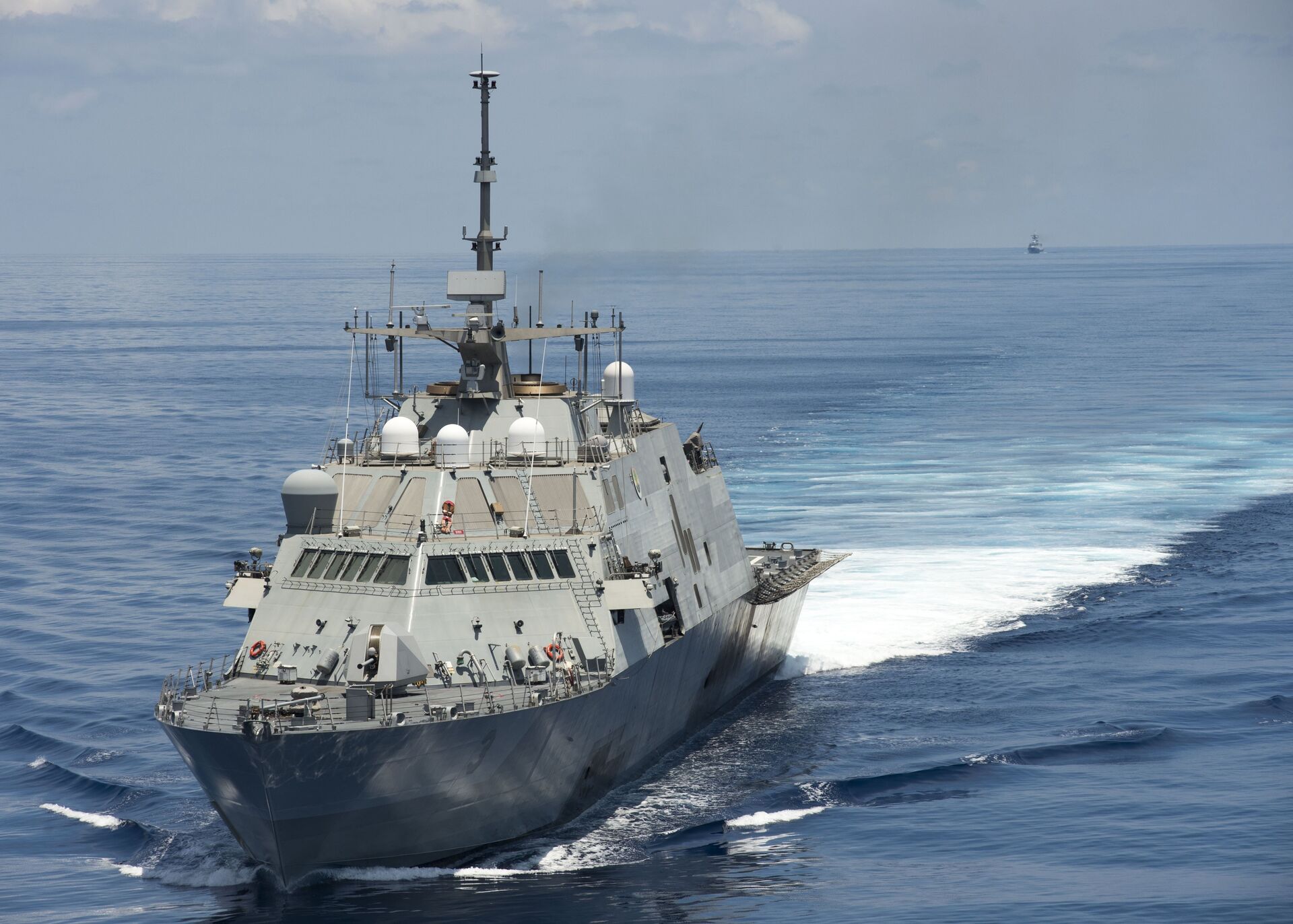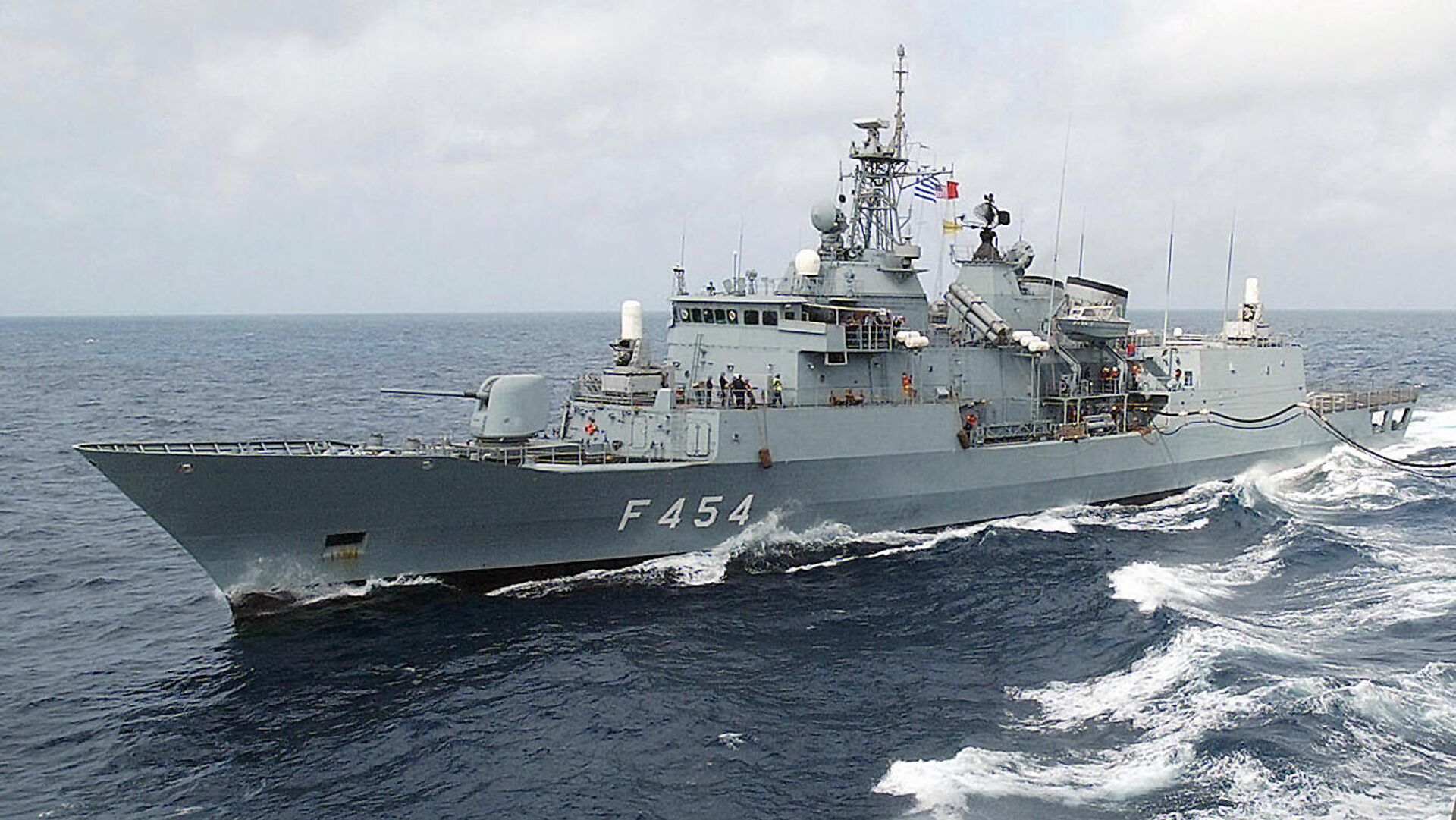US State Dept. Approves $9.4 Billion in Deals to Sell Greece Littoral Combat Ships, Upgrade Frigates
Subscribe
Two potential weapons deals with US ally Greece were given the go-ahead by the US State Department on Friday, which would see four older frigates get extensive upgrades and also supply them with four new warships.
The Defense Security Cooperation Agency (DSCA) announced approval of the two deals on Friday, which will still have to be approved by Congress before the sale can begin.
In one deal, the US would sell Athens four Multi-Mission Surface Combatant (MMSC) ships, better known as Freedom-class littoral combat ships, along with a range of associated equipment and weaponry, including radars, sonar arrays, combat management systems, rockets, and missiles, together totalling $6.9 billion.
In the other, the US would agree to supply equipment and expertise for repairing, updating and enhancing the Hellenic Navy’s four Hydra-class frigates, which are also known by the German-built family of warships of which they are a part: MEKO. The deal is worth $2.5 billion.
The two warship classes are of roughly equal size, with the Hydras displacing 4,000 tons fully loaded and the MMSCs, although longer, displacing 3,500 tons. They also share a similar modularity, allowing them to switch configurations to carry a variety of weapons. However, the frigates are made for blue-water sailing, while as the name suggests, the littoral combat ships are intended for operating close to shore.

Littoral combat ship USS conducts routine patrols in international waters of the South China Sea
© Flickr / U.S. Pacific Fleet
The bid to upgrade the Greek frigates was contested by several European firms, including their manufacturer, Germany’s Blohm+Voss. Jon Rambeau, vice president and general manager for the Integrated Warfare Systems and Sensors business line at Lockheed Martin, told Defense News in September that if the contract were awarded to the US, the US Navy would act as “the custodian of Greece’s money” and contract the job to Lockheed.
“The proposed sale will improve Greece’s capability to meet current and future threats by providing an effective combatant deterrent capability to protect maritime interests and infrastructure in support of its strategic location on NATO’s southern flank,” the State Department said in a statement.
Athens’ naval concerns are threefold: as part of NATO, it wants a better ability to track Russian submarines in the Black Sea and Mediterranean, but it also wants to better police migration from Africa that comes across the Aegean, as well as have better leverage in its ongoing nautical tensions with Turkey, another NATO ally.
Ankara has in recent years pushed back against Greek and Cypriot control over vast portions of the seas off of Turkey’s southern and western coasts owing to their control of numerous offshore islands, particularly following the discovery of gas deposits under the seafloor.
Last week, Nicosia called Ankara’s bluff on claims it would attempt to interfere in any Cypriot gas exploration activities, giving ExxonMobil and Qatar Petroleum licenses for hydrocarbon exploration in sectors southwest of the island nation. The two corporations penned the agreement in Nicosia on Friday.
Total and ENI are expected to also be given licensed blocks on the continental shelf in early 2022, according to AFP.



